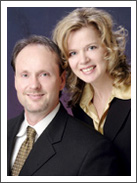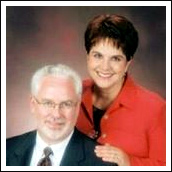Character, Calling, and Contribution (Part 2)
Jim Herring
 Rev. Jim Herring is gifted Bible teacher who ministers God’s Word in a passionate, powerful, and practical way. The focus of Jim’s ministry is to help believer’s overcome the trials of life, walk by faith, and reach their full potential in life.
Rev. Jim Herring is gifted Bible teacher who ministers God’s Word in a passionate, powerful, and practical way. The focus of Jim’s ministry is to help believer’s overcome the trials of life, walk by faith, and reach their full potential in life.
Jim graduated from Rhema Bible Training Center in Tulsa, Oklahoma specializing in Pastoral ministry. He also holds a Bachelor’s Degree in Church Ministry from Southwestern Assemblies of God University in Texas.
Jim and his lovely wife, Samantha, are the founders and senior Pastors of Abundant Life Family Church in Fort Worth, Texas. They lead a vibrant, thriving, and multi-cultural church in the heart of Texas. Jim and Samantha are also the proud parents of two children, Annabel and Andrew.

 The world is comparison crazy! People compare almost every physical quality or material possession. I wish I could tell you the church is exempt from this wicked worldly attribute but unfortunately I can’t. We compare preachers, programs, facilities, congregational size, and the number of multi-site locations.
The world is comparison crazy! People compare almost every physical quality or material possession. I wish I could tell you the church is exempt from this wicked worldly attribute but unfortunately I can’t. We compare preachers, programs, facilities, congregational size, and the number of multi-site locations.
Paul addressed this very issue in the book of 2 Corinthians.
2 Corinthians 10:12 (NKJV)
For we dare not class ourselves or compare ourselves with those who commend themselves. But they, measuring themselves by themselves, and comparing themselves among themselves, are not wise.
God specifically tells us not to compare and rarely does it produce anything beneficial. Besides, God does not consider any of those things when evaluating our life. He does however, consider a few things when examining our life.
What separates people in the eyes of God? What does He use to evaluate our life?
There are three major markers and they all start with the letter “C”.
- Character
- Calling
- Contribution
In our last article, we addressed the subject of character (click here to check it out). Character answers the question, “Who am I?”
The second thing that separates people in the eyes of God is our calling.
Character answers the question, “Who am I?” Calling answers the question, “Why am I here?”
Here is the good news. You have a calling from God and He has a lot to say about this important subject.
Ephesians 4:1 (NKJV)
I, therefore, the prisoner of the Lord, beseech you to walk worthy of the calling with which you were called,
God instructs us to “walk” worthy of the calling with which we have been called. If I can walk “worthy,” I can walk “unworthy.” The word “walk” is the Greek word “peripateo” which means to “conduct your life”. In other words, God is telling us to live and conduct our life worthy of the calling we have received.
The New Living Translation says, “I…beg you to lead a life worthy of your calling, for you have been called by God.”
Paul also spoke of the call of God as “holy” and “according to His own purpose.”
2 Timothy 1:9 (NKJV)
who has saved us and called us with a holy calling, not according to our works, but according to His own purpose and grace which was given to us in Christ Jesus before time began,
You are saved and called for the purpose of God. I want to break down your calling into three specific categories that need our attention and focus.
You Are Called into Fellowship with Christ
This is your highest calling. Notice what Paul said in the book of 1 Corinthians.
1 Corinthians 1:9 (NKJV)
God is faithful, by whom you were called into the fellowship of His Son, Jesus Christ our Lord.
Every believer is called by God into regular fellowship with God. It is staggering, humbling, and encouraging to know that God loves you and wants to spend time with you. Even if other people reject you, God covets time with His kids. How do you spend time in fellowship with God? You do it through prayer, worship, reading the Word, meditation, attending church, and getting quiet before the Lord.
The Lord does not want you to just know facts about Him. He wants you to spend time with Him and get to know Him. Facts don’t automatically translate into relationship. For instance, I know facts about Michael Jordan, but I don’t have a relationship with him. Relationship requires consistent, focused time and effort.
Not too long ago I was reading through the New Testament and I was struck by the actions of Jesus. He taught the multitudes, cast out demons, healed the sick, and trained the twelve. However, over and over again you see something else. Jesus spent time fellowshipping with the Father. The Bible tells us that Jesus left the multitude and went on the mountain to pray (Matthew 14:23). Jesus frequently demonstrated how to fulfill our highest calling – fellowship with God.
Every day that you pray, read the Word, and spend time with God, you are fulfilling your highest calling.
2. You Have General Callings
General callings are the ones communicated to us on the pages of Scripture. These principles apply to all of God’s children. Notice what the Bible says regarding our call to live a holy life.
1 Thessalonians 4:7 (NLT)
God has called us to live holy lives, not impure lives.
Here we find a general calling that God has for every child of God. This calling does not just apply regarding this command, but all of God’s commands.
We are called to:
- Love one another. John 13:34
- Witness to the unbeliever. Acts 1:8
- Serve others in the Body of Christ. Galatians 5:13
- Bring our children up in the ways of God. Ephesians 6:4
- Pray for those who persecute us. Matthew 5:44
- Forgive one another. Colossians 3:13
- Give honor to those in authority. 1 Thessalonians 5:12, NLT
- Love your wife. Ephesians 5:33
- Respect your husband. Ephesians 5:33
- Encourage one another. Hebrews 3:13, NIV
Often we don’t think of these things as our “calling.” However, they certainly are. In Tony Cooke’s book, “Qualified,” he speaks to this very issue.
“Misconceptions abound concerning what it means to be “called” by God. Many Christians tend to think of the “calling” as something that applies only to preachers, but God has called all of us to be His children and to reflect His glory and honor in the earth.” (Qualified, p. 11)
God makes this very clear in the book of 2 Corinthians.
2 Corinthians 3:18 (The Message)
All of us! Nothing between us and God, our faces shining with the brightness of his face. And so we are transfigured much like the Messiah, our lives gradually becoming brighter and more beautiful as God enters our lives and we become like him.
We are called to become more and more like Him.
Every Christian has their highest calling – fellowship with God.
Every Christian has general callings given to us in the Word of God.
3. You Have a Specific Calling
Your specific calling deals primarily with your vocation. Here are a few things to remember about your specific calling.
It is specific!
General callings are easy to discover – they are found in the pages of the Word of God. However, your specific calling will not be found in the Word of God.
For example, God has called my wife and me to pastor a great church in Fort Worth, Texas. However, we never read in the Bible, “Jim and Samantha, I have called you to Pastor the Body of Christ, in Fort Worth.” That is something we had to receive in prayer and fellowship with God. It is His specific will for our life.
Your specific calling is something you have to receive from the Spirit of God. Since your specific calling is not on the pages of Scripture, the only accurate way you can know your specific calling is be making your highest calling a top priority. Remember, your highest calling is spending time with God. When you spend time with God (your highest calling), He will reveal His specific call to you.
Let’s examine the life of Moses and discover some common facts regarding our specific calling.
Exodus 3:1–8 (NKJV)
Now Moses was tending the flock of Jethro his father-in-law, the priest of Midian. And he led the flock to the back of the desert, and came to Horeb, the mountain of God. And the Angel of the Lord appeared to him in a flame of fire from the midst of a bush. So he looked, and behold, the bush was burning with fire, but the bush was not consumed. Then Moses said, “I will now turn aside and see this great sight, why the bush does not burn.” So when the Lord saw that he turned aside to look, God called to him from the midst of the bush and said, “Moses, Moses!” And he said, “Here I am.” Then He said, “Do not draw near this place. Take your sandals off your feet, for the place where you stand is holy ground.” Moreover He said, “I am the God of your father—the God of Abraham, the God of Isaac, and the God of Jacob.” And Moses hid his face, for he was afraid to look upon God. And the Lord said: “I have surely seen the oppression of My people who are in Egypt, and have heard their cry because of their taskmasters, for I know their sorrows. So I have come down to deliver them out of the hand of the Egyptians, and to bring them up from that land to a good and large land, to a land flowing with milk and honey, to the place of the Canaanites and the Hittites and the Amorites and the Perizzites and the Hivites and the Jebusites.
There are usually three things involved when it comes to your specific calling: a place, a people, and a purpose. Notice, Moses had a place, Egypt and Canaan’s land. Moses also had a people, the Israelites. Moses also had a purpose, to deliver his people from Egyptian slavery.
The same principles can be seen in my own life. I have a place, Fort Worth, Texas. I have a people, Abundant Life. I have a purpose, pastoring and making disciples.
You also have a place God wants you, a people that God has called you to, and a purpose to fulfill. You may not know immediately what those are but don’t be discouraged. Remember this: ignorance of purpose is not an indication of the absence of purpose.
You have a purpose because you are a child of God.
In conclusion, I want to dispel a misconception that has caused many to feel inferior. Your calling to work in the world is just as sacred as my calling to pastor in the Body of Christ. God has called you just like He has called me. Every day that you live for God and go to work in this world, you are making a difference for the Kingdom of God. You are helping serve others and influencing them for God.
The fact is, the work of every believer is sacred, not secular.
Sacred means “directed and devoted to God”. God calls His people to serve in this world.
God calls teachers.
God calls nurses.
God calls doctors.
God calls pilots.
God calls roofers.
God calls salesmen and women.
God calls electricians, plumbers, farmers, and contractors.
I love something Martin Luther once wrote.
“A cobbler, a smith, a farmer, each has the work and the office of this trade, and they are all alike consecrated priests and bishops, and every one by means of his own work or office must benefit and serve every other, that in this way many kinds of work may be done for the bodily and spiritual welfare of the community, even as all the members of the body serve one another.” – Leadership journal article “Refocused Vocation” Winter 2013
When God directs your life, you step into your job everyday fulfilling your specific calling.
Let’s all “walk” worthy of our calling.
Let’s all be focused on fulfilling our highest call by spending time with God.
Let’s all fulfill our general callings by obeying the Word of God.
Let’s all discover and fulfill our specific calling and make a difference in this world.

 Pastors Duane and Mary Hanson dedicated their lives to Christ over 30 years ago and have committed themselves to helping people know God through His Word. Having come from Protestant and Catholic backgrounds, the desire of their heart is to help people become established in the truths of God’s Word rather than the traditions of men. Helping pioneer a church in Minneapolis in 1977 gave them an opportunity to develop their teaching ministries. They responded to the call of God on their lives in 1979 and began making preparations for full time ministry. In 1982 they pioneered Established Heart Ministries in the Highland Park area of Saint Paul. The Hanson’s have lived and been actively involved in the local community of Highland Park for two decades.
Pastors Duane and Mary Hanson dedicated their lives to Christ over 30 years ago and have committed themselves to helping people know God through His Word. Having come from Protestant and Catholic backgrounds, the desire of their heart is to help people become established in the truths of God’s Word rather than the traditions of men. Helping pioneer a church in Minneapolis in 1977 gave them an opportunity to develop their teaching ministries. They responded to the call of God on their lives in 1979 and began making preparations for full time ministry. In 1982 they pioneered Established Heart Ministries in the Highland Park area of Saint Paul. The Hanson’s have lived and been actively involved in the local community of Highland Park for two decades. If you’ve been around the “Word of Faith Movement” for any length of time, you’ll have heard a few messages that use the following passage.
If you’ve been around the “Word of Faith Movement” for any length of time, you’ll have heard a few messages that use the following passage. Rev. Jim Herring is gifted Bible teacher who ministers God’s Word in a passionate, powerful, and practical way. The focus of Jim’s ministry is to help believer’s overcome the trials of life, walk by faith, and reach their full potential in life.
Rev. Jim Herring is gifted Bible teacher who ministers God’s Word in a passionate, powerful, and practical way. The focus of Jim’s ministry is to help believer’s overcome the trials of life, walk by faith, and reach their full potential in life. The world is comparison crazy! People compare almost every physical quality or material possession. I wish I could tell you the church is exempt from this wicked worldly attribute but unfortunately I can’t. We compare preachers, programs, facilities, congregational size, and the number of multi-site locations.
The world is comparison crazy! People compare almost every physical quality or material possession. I wish I could tell you the church is exempt from this wicked worldly attribute but unfortunately I can’t. We compare preachers, programs, facilities, congregational size, and the number of multi-site locations.